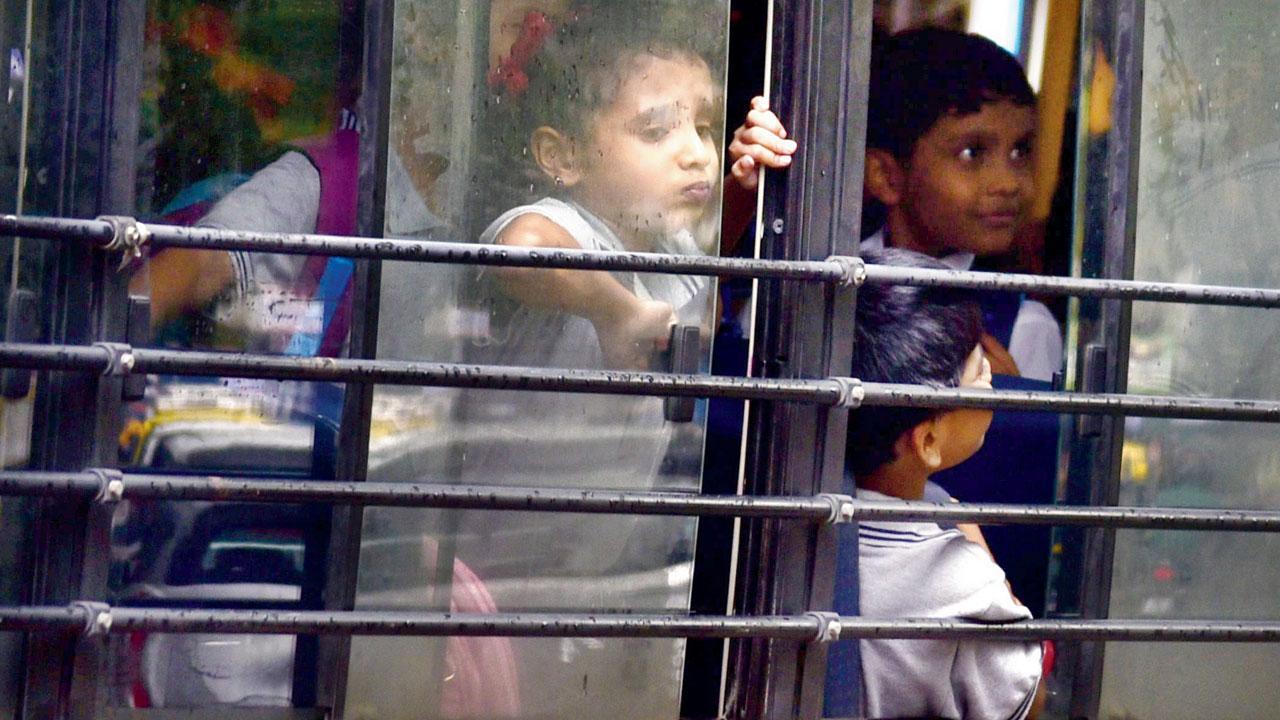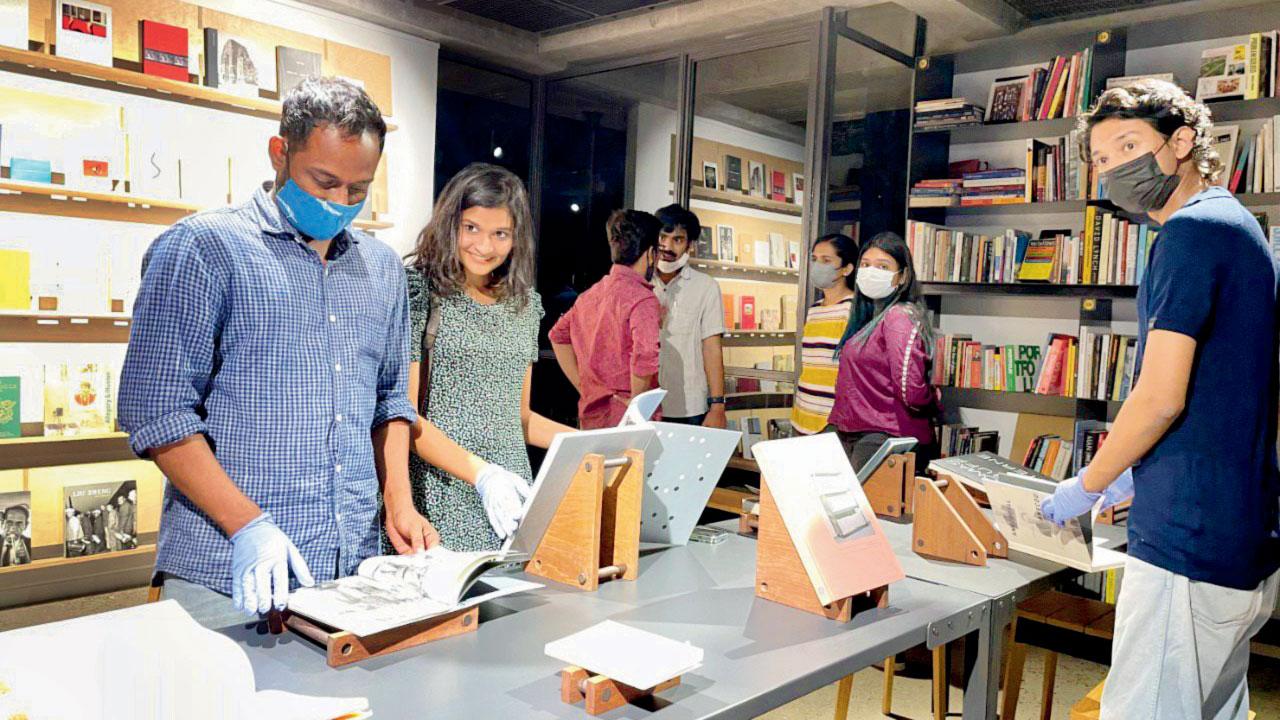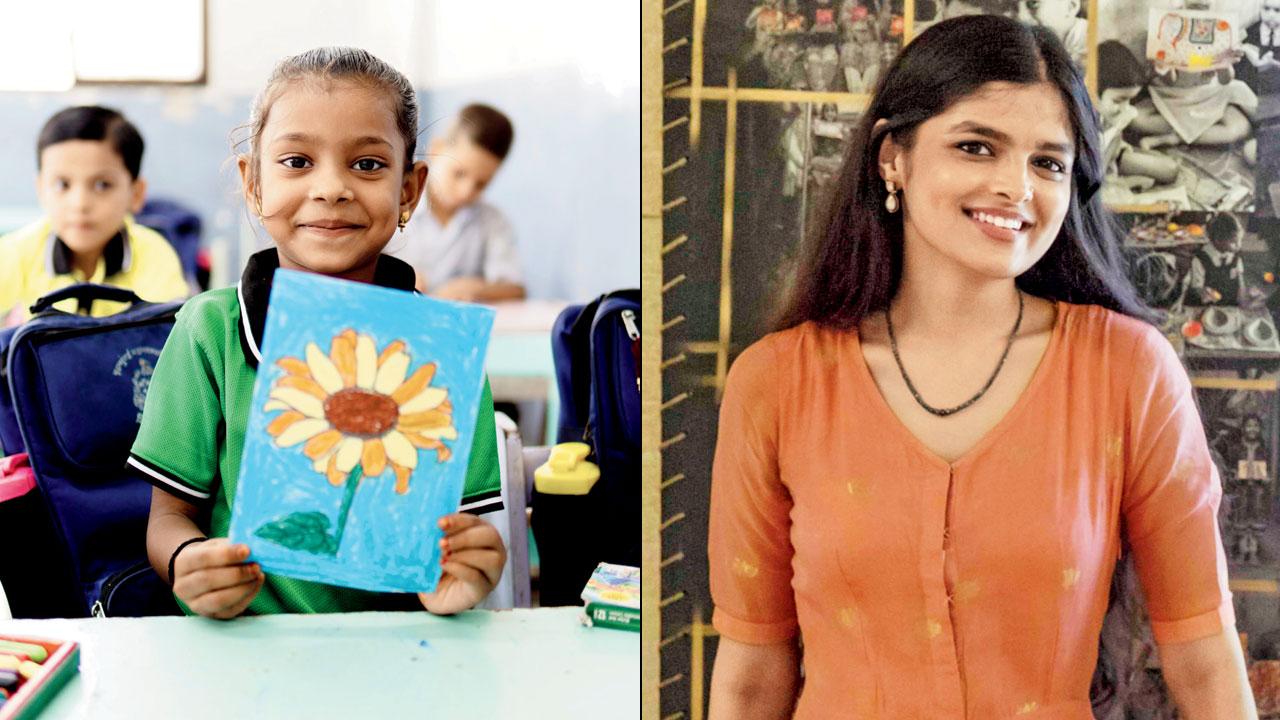The city - sliced, diced and served with a dash of sauce

Pic/Atul Kamble
It’s hard to put on a happy face
ADVERTISEMENT
A young girl sulks as she looks out the window with fellow students of Little Angels’ School on their bus in Sion
Lens on photobooks

An earlier exhibit by Editions JOJO
We’re routinely inundated by images, be it online or on the TV. But the photobook — a storytelling format with images at its core — is still an under-explored genre. Ballard Estate-based IF.BE is set to celebrate the art of the photobook on August 9 with a pop-up library by Editions JOJO, a portfolio review by Franco-Venezuelan photographer Mathieu Asselin, and a chat between Asselin and photographer Akshay Mahajan. “The idea is to dedicate a space for photobooks and photographers,” Shikha Sethi, deputy director, programming, told us. Editions JOJO is the self-publishing alias of visual artist Kaamna Patel, who runs JOJO Library, a photobook library in Dadar. “We’ll have a selection of books curated by Mahajan in response to Asselin’s practice. There’ll also be a bookshop corner that will showcase titles by other artists. The idea is to try and find multiple approaches to how you access collections like these, especially for those who are just discovering the genre,” said Patel.
Business of love

Giving India’s famous matchmaker Seema Taparia aka ‘Seema aunty’, a run for her money is Bandra’s very own emissary, as shared on Instagram by Shormistha Mukherjee (inset), the co-founder of Flying Cursor Interactive. Mukherjee, a serial street explorer who documents houses of Bandra, came across this banner for local matchmaking services while strolling on Waroda Road. She shared, “It’s like a giant business card, and the sweetest thing I have ever seen, so I had to capture it. I document corners that hold on to a community feel before the quintessential character of this hamlet is lost.” To know more, check @housesofbandra.
Farewell to a genuine newsroom warrior
For those who worked in Mumbai’s English media circles in the 1980s and ’90s, there is a strong possibility that you have at least one memory of an off-the-cuff unsmiling encounter with the kurta pyjama-clad Mayank Bhatt. If you were colleagues in a newsroom, you would have most likely heard him say: “If the monsoon copy doesn’t excite you, there is still time to decide if you want to continue...”

Mayank Bhatt
Bhatt’s wry sense of humor caught many off-guard, and ticked off many more. But those who worked around his idiosyncrasies (and many wanted to), he was a great mentor, an inspiring presence in newsrooms of various (some defunct) dailies like The Free Press Journal, The Daily, The Sunday Observer, and The Blitz weekly. When news of his death reached Mumbai on Tuesday afternoon, fellow journalists either revisited their moments with Bhatt, or reread his meticulously-written publicly serialised, Diary of Coping, in which he shared his deepest thoughts after being diagnosed with pancreatic cancer in June 2020. Fear, breakdowns, family tensions, friendships, helplessness, slivers of hope, the joys of WhatsApp connectivity — Bhatt covered every aspect with a trademark transparency, as if he was preparing his loved ones who were living continents apart for an inevitable bad news.
Bhatt, 61, can be remembered as the journalist who wrote extensively (in pre-Internet Mumbai) and unsparingly on the city’s slum redevelopment/rehabilitation; the fine copy editor who could tinker late-night hurried dispatches; the journalist who did very well in a leadership role at the Toronto-based bilateral trade organisation. Bhatt’s cross-cultural leadership is reflected in the TV show Living Multiculturalism. His novel, Belief, a story of an impressionable Muslim youth, is a memorable portrait of middle-class India.
Bhatt’s passionate case for news reporting in Mumbai is what stands out. As per his theory, if a city journalist sincerely devotes himself/herself to all key civic news beats for a period of one year, the city and the person both benefit immensely. He felt news reporting was a disciplining force. But for those who worked around with trademark transparency, he would reply with a deadpan expression, “Rackets also have a place…”
Starting young

With a heart full of art, Saturday Art Class was launched in 2017 to slowly mould a world where children are inspired to create more. On their fifth anniversary, co-founder Chhavi Khandelwal (in pic, below) told this diarist that every educator and child, who is a part of the initiative, is empowered to further their vision. “We want to equip kids to become future innovators, and that’s the idea we spread amid the school ecosystem.” The class that had started with only 30 kids in Shankarwadi Mumbai Public School aims to work with 10,000 children and 300 educators this year. “We are partnering with local and national NGOs to incorporate creative learning in their existing modules,” she added.
Paw-pular readers

Until the weekend arrives, we wouldn’t mind a daily nudge to make things a tad easier. Publishing house Westland Books started a new segment on Tuesday on Twitter called #FurryTails to bring in some much needed TLC. Following a weekly routine, it will introduce readers to one furry friend who seems happy to pose with literary titles. Audi (in pic), a lover of treats, laughs and cuddles, features in their opening credits.
 Subscribe today by clicking the link and stay updated with the latest news!" Click here!
Subscribe today by clicking the link and stay updated with the latest news!" Click here!







